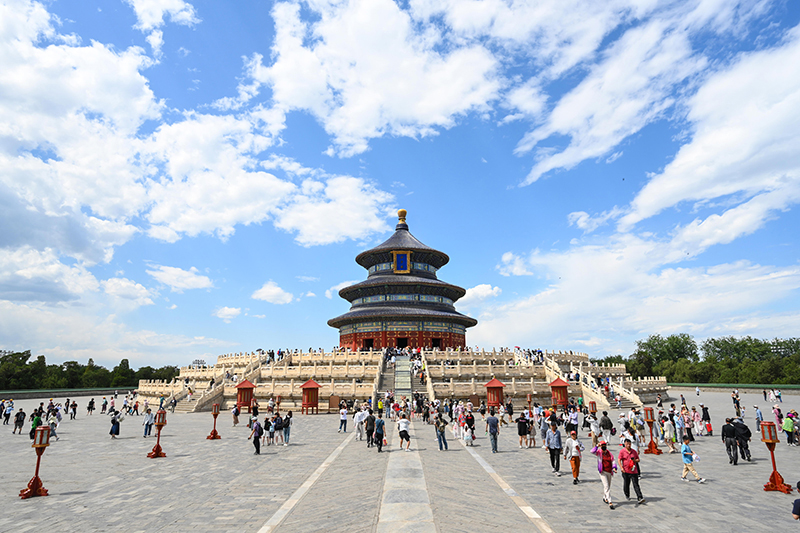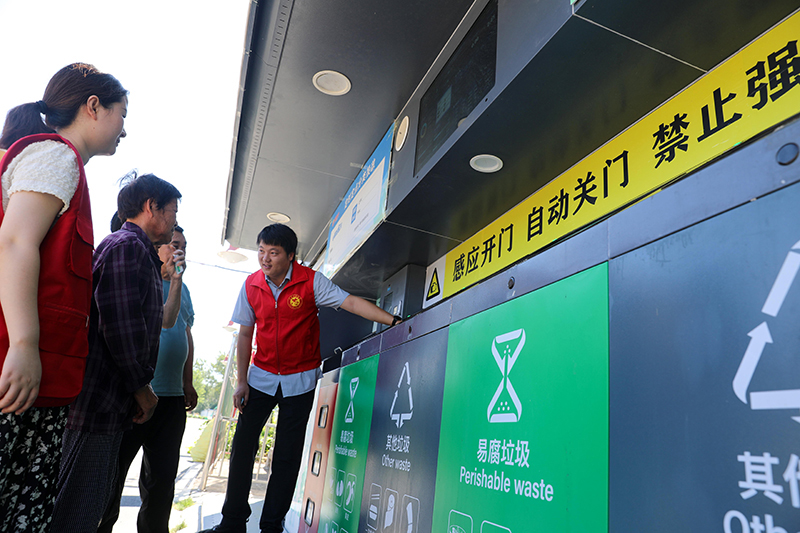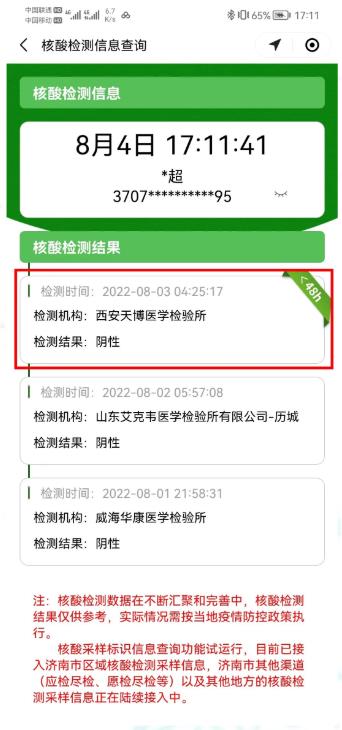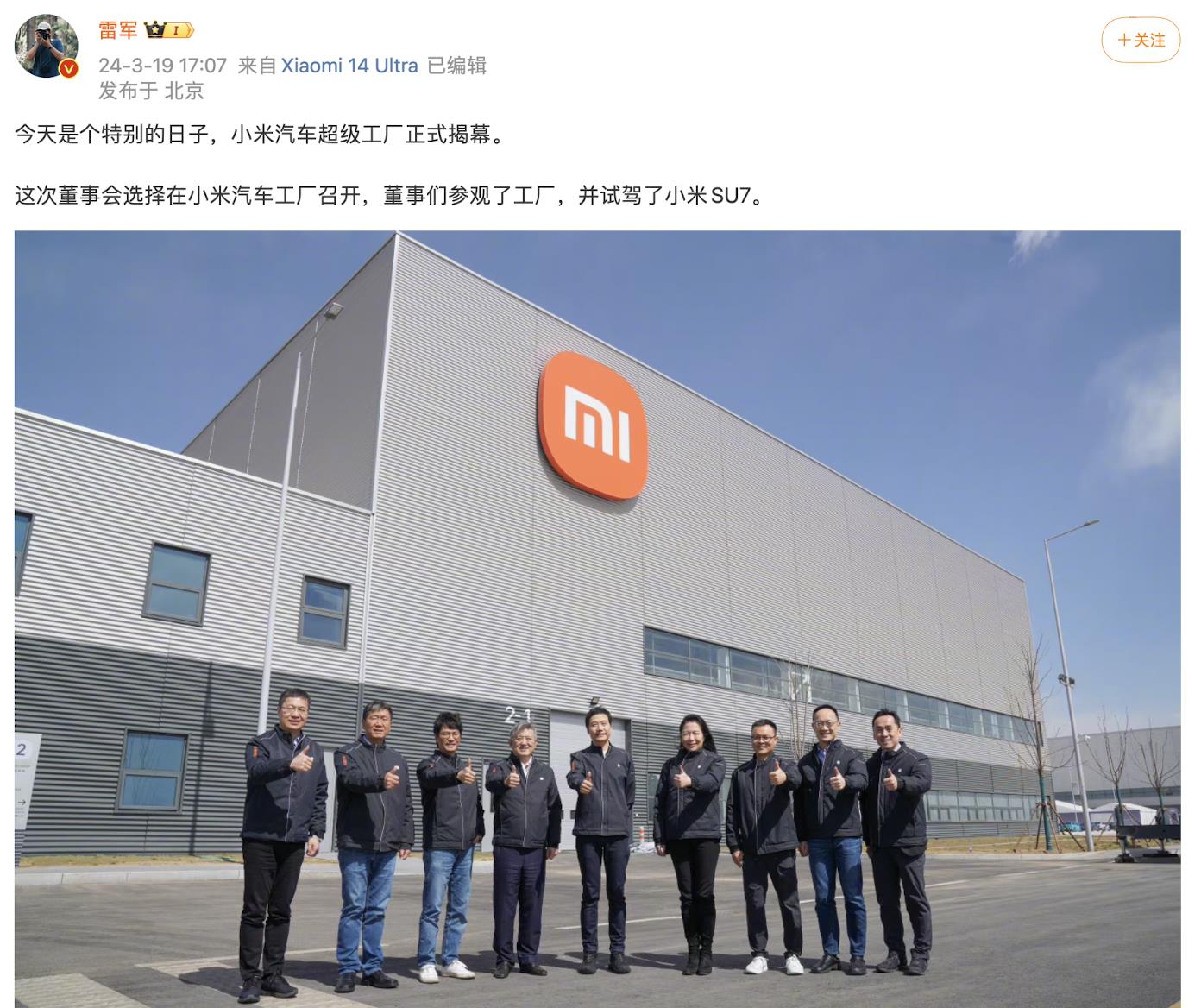 ?
?

?
?
?
柳州市人民政府办公室
On the issuance of "Liuzhou further
Building a High-quality Charging Infrastructure System
?Create an "upgraded version" of the promotion and application of new energy vehicles
Embodiment (2023—2025Notice of the year)
?
County, District People’s governments, relevant commissions, offices and bureaus directly under the municipal authorities, administrative committees of Liudong New District, Yang and new industrial district (Northern Ecological New District), and relevant units:
"Liuzhou City to further build a high-quality charging infrastructure system to create an" upgraded version "implementation plan for the promotion and application of new energy vehicles (2023—2025Year) has been agreed by the Municipal People’s government and is hereby issued to you, please earnestly organize the implementation.
?
?
?
????????????????????? 柳州市人民政府办公室
???????????????????????? ?????????????????????? 2023年12月14sun
?
?
?
?
?
?
?
?
?
?
?
?
?
?
?
?
?
?
?
?
?
?
?
Liuzhou will further build a high-quality charging infrastructure system and create an "upgraded version" for the promotion and application of new energy vehicles.
Embodiment (2023—2025Year)
?
In order to thoroughly implement the Guiding Opinions of the General Office of the State Council on Further Building a High-quality Charging Infrastructure System (Guo Ban Fa [2023〕19No.), "Implementation Opinions of the National Energy Administration of the National Development and Reform Commission on Accelerating the Construction of Charging Infrastructure to Better Support New Energy Vehicles to the Countryside and Rural Revitalization" (Development and Reform Comprehensive [2023〕545No.) and the Notice of the General Office of the People’s Government of Guangxi Zhuang Autonomous Region on Printing and Distributing the Implementation Plan for Accelerating the Construction of Charging Infrastructure in Guangxi to Better Support New Energy Vehicles to the Countryside and Rural Revitalization (Zheng Gui Office [2023〕forty-nine), further build a high-quality charging infrastructure system, continue to strengthen the popularization and application of new energy vehicles, accelerate the construction of charging infrastructure, optimize the environment for the purchase and use of new energy vehicles, promote new energy vehicles to the countryside, guide residents in counties, townships and villages to travel green, and formulate this plan in combination with the actual situation of our city.
I. General requirements
(A) the guiding ideology
Guided by Socialism with Chinese characteristics Thought of the Supreme Leader in the New Era, fully implement the spirit of the 20th Party Congress, base on the new stage of development, implement the new development concept completely, accurately and comprehensively, actively serve and integrate into the new development pattern, make great efforts to promote high-quality development, adhere to goal orientation and problem orientation, and further promote the promotion and application of new energy vehicles. Build a high-quality charging infrastructure system, focus on strengthening the management of new energy charging infrastructure, and improve the service quality of charging infrastructure. Actively build an "upgraded version" of the promotion and application of new energy vehicles in Liuzhou, promote the pilot project of comprehensive electrification of vehicles in the public sector, accelerate the promotion of new energy vehicles to the countryside, build a software and hardware service system suitable for new energy vehicles in rural areas, and promote the comprehensive revitalization of new energy vehicles to the countryside and the countryside.
(2)fundamental principle
Government guidance, market-led. Governments at all levels do a good job in overall planning and coordination, improve the system of policies and measures conducive to the development of new energy vehicles, and optimize the business environment. Make full use of the market mechanism to promote enterprises to play the main role in the production, sales, promotion and supporting services of new energy vehicles.
Foundation first, supporting services. Carry out the concept of service promoting development, and promote the construction of software and hardware systems for after-sales service and charging service of new energy vehicles. Carry out the revision of the special planning for charging infrastructure construction, make overall arrangements for the spatial layout and construction requirements of the city’s charging infrastructure, and appropriately lay out the charging infrastructure construction in key areas in advance. In view of the outstanding problems such as regional imbalance of charging infrastructure, efforts are made to speed up the construction of charging infrastructure in key areas and weak areas to meet the needs of users for energy replenishment. Accelerate the construction of after-sales service stations for new energy vehicles in counties and townships, improve the automobile service level in counties and townships, and then enhance the acceptance of new energy vehicles in counties and townships.
Key breakthroughs and appropriate measures. Based on the achievements of promoting new energy vehicles in Liuzhou, the application scenarios of new energy vehicles are extended to counties, townships and villages. Increase the application in public areas such as public transportation, tourism, logistics and transportation, sanitation and official vehicles, guide enterprises to develop applicable products, and take targeted measures to promote the application of new energy vehicles. Strengthen the planning and management of charging infrastructure to ensure the safe and effective operation of charging infrastructure of new energy vehicles.
Take the initiative and innovate the mechanism. Give play to the role of pilot demonstration of the promotion and application of new energy vehicles and dare to try early adopters. Guided by the goal, give play to the policy guiding role of the government, stimulate the subjective initiative of functional departments, and constantly innovate mechanisms to create conditions for promoting the promotion of new energy vehicles and the work of new energy vehicles going to the countryside.
(III) Objectives and tasks
1.The task of building new energy charging infrastructure.2023Year’s arrival2025In, new charging infrastructure was built.1Ten thousand, of which:2023Built in3000A;2024Built in3400A;2025Built in3600A. arrive2025In 2008, the charging infrastructure was "fully covered in every village".AAll scenic spots above Grade I are equipped with charging infrastructure, and an urban and rural charging infrastructure system with efficient coverage, moderate advance and intelligent interconnection is basically built, which is suitable for the number of new energy vehicles in the city.
2.The task of promoting the number of new energy vehicles. Strive to use three years to increase the number of new energy vehicles in the city.10More than ten thousand vehicles, including:2023Annual increase3More than 10,000 vehicles,2024Annual increase3.2More than 10,000 vehicles,2025Annual increase3.8More than ten thousand vehicles.
3.Create demonstration counties, townships and villages for the promotion of new energy vehicles. Continue to build a demonstration city for the promotion and application of new energy vehicles in Liuzhou, and further build demonstration counties, demonstration townships and demonstration villages for the promotion and application of new energy vehicles. till/extremely2025In, ensure that there are demonstration townships and demonstration villages in demonstration counties, and at least one county can be built.twentyLarge and medium-sized charging stations that provide comprehensive charging services for more than 10 new energy vehicles.
4.Promote the pilot construction of comprehensive electrification of vehicles in the public sector. Strive to promote new energy vehicles in the public domain.12177The ratio of newly-added vehicles to piles in public areas has basically reached.1.5:1。
Second,primary mission
(1) Strengthen the construction of charging infrastructure for new energy vehicles.
1.Optimize the urban public charging network. Relying on the urban road traffic network, we will strengthen the construction of charging infrastructure in areas such as "one hub" (traffic hub: including high-speed railway station, airport, bus, taxi station, road passenger and freight station, port and dock, etc.), "two districts" (residential area, office area) and "three centers" (commercial center, industrial center and leisure center), and strive for traffic hub, office area and leisure center.20%The proportion of configuration charging infrastructure. Among them, the transportation hub mainly lays out the charging infrastructure with high power and high versatility; Promote intelligent and orderly charging infrastructure in residential areas, supplemented by emergency quick charging; Office areas and "three centers" and other urban special and public areas should be laid out according to local conditions to build a public charging infrastructure that combines speed and speed. Vigorously promote the integrated planning, construction and management of urban charging infrastructure and parking facilities, and strive to achieve comprehensive coverage of various parking scenes in the city. [Lead unit: people’s governments of counties (districts), administrative committees of Liudong New District, Yanghe new industrial district (Northern Ecological New District); Cooperating units: Municipal Development and Reform Commission, Housing and Urban-Rural Development Bureau, Natural Resources and Planning Bureau, Urban Management and Law Enforcement Bureau, Transportation Bureau, Liuzhou Power Supply Bureau]
2.Infrastructure construction of charging and replacing electricity at encrypted road traffic nodes. Strictly formulate and implement the charging infrastructure construction plan for county and township road traffic nodes, encrypt charging infrastructure sites at county and township road nodes in accordance with the requirements of appropriate advance, and give priority to promoting the addition of charging infrastructure at qualified gas stations. till/extremely2025By the end of the year, all county and township roads in the city will be covered with charging stations, and in principle, the interval between charging stations of county and township roads will not exceed.10Kilometers, each charging station is equipped with at least2A DC charging pile. Appropriate allocation of ultra-fast pile filling or power station replacement in qualified areas. [Lead units: people’s governments of counties (districts), administrative committees of Liudong New District, Yanghe new industrial district (Northern Ecological New District), Municipal Transportation Bureau, Housing and Urban-Rural Development Bureau, Natural Resources and Planning Bureau; Cooperating unit: Municipal Bureau of Commerce]
3.Improve the comprehensive service level of charging stations. At least one can be built in each countytwentyA medium-sized and large-scale integrated centralized comprehensive service charging station that provides comprehensive charging services for more than 10 new energy vehicles. Actively promote qualified towns or scenic spots to build a medium-sized and large-scale integrated centralized comprehensive service charging station. Improve the guidance service of charging stations, set up the identification signs of charging stations, and do a good job in guiding the identification of charging stations on national highways and county roads. At the same time, with the help of information technology, do a good job of charging site identification and guidance on the electronic map. Improve the comprehensive service level of charging stations, while meeting the centralized charging demand of new energy vehicles, provide supporting facilities such as customer lounge, toilet, emergency rescue of electric vehicles and operation and maintenance of charging infrastructure, and further improve the comprehensive service level of charging stations such as leisure and emergency. [Lead unit: people’s governments of counties (districts), administrative committees of Liudong New District, Yanghe new industrial district (Northern Ecological New District); Cooperating unit: Liuzhou Power Supply Bureau]
4.Promote the construction of charging infrastructure in residential communities. Existing residential communities (including relocation and centralized resettlement communities) should carry out the transformation of charging infrastructure construction conditions according to local conditions, and implement the residential communities with installation conditions.10%The proportion of the construction of public charging parking spaces policy. The implementation of new residential communities (including relocation of centralized resettlement communities) according to100%The policy of building charging infrastructure or reserving installation conditions in fixed parking spaces can meet the needs of direct electricity installation. Accelerate the formulation of management guidelines for charging infrastructure construction in residential areas. The housing and urban-rural construction departments of counties (districts) and new districts are responsible for guiding property service personnel to cooperate with charging operators, owners, power supply enterprises and construction units in charging infrastructure construction. Guide the community to promote sharing modes such as "adjacent parking spaces sharing", "community time-sharing" and "multiple cars and one pile". [Lead unit: people’s governments of counties (districts), administrative committees of Liudong New District, Yanghe new industrial district (Northern Ecological New District), and Municipal Housing and Urban-Rural Development Bureau; Cooperating units: Municipal Development and Reform Commission, Natural Resources and Planning Bureau, Agriculture and Rural Bureau, Rural Revitalization Bureau, Liuzhou Power Supply Bureau]
5.Strengthen the layout planning of rural charging infrastructure. Fully implement the requirements of "full coverage at the county, township and village levels" for charging infrastructure. County (District) government, the new district management committee to further improve the township charging network, in accordance with the "Guangxi new energy vehicle charging infrastructure planning (2021—2025In), combined with the actual situation of the distribution of rural residents’ living and production areas, the number of new energy vehicles and natural geographical conditions in each county, the layout of charging infrastructure at the county, township and village level should be refined, and the layout and construction target of charging infrastructure should be sunk to the county, township and village, and it should be well connected with the national spatial planning and rural power grid transformation planning. [Lead unit: people’s governments of counties (districts), administrative committees of Liudong New District, Yanghe new industrial district (Northern Ecological New District); Cooperating units: Municipal Development and Reform Commission, Natural Resources and Planning Bureau, Agriculture and Rural Bureau, Rural Revitalization Bureau, Liuzhou Power Supply Bureau]
6.Promote the construction of charging infrastructure in all units. County (district) governments and new district management committees should promote the construction of charging infrastructure in qualified county and township enterprises and institutions, the location of village (neighborhood) committees, the stations (institutes) directly under the township (town), the stations (institutes) under the double-level management of district departments and townships (towns), the "all-in-one management" institutions, centralized production areas, processing areas, industrial areas and other places, and give priority to them. [Lead unit: people’s governments of counties (districts), administrative committees of Liudong New District, Yanghe new industrial district (Northern Ecological New District); Cooperating units: Municipal Organs Administration Bureau, Rural Revitalization Bureau, Housing and Urban-Rural Development Bureau, Transportation Bureau, Liuzhou Power Supply Bureau]
7.Promote the construction of charging infrastructure in cultural tourism sites. Promote the tourism distribution center,ACharging infrastructure shall be built in the parking lots of scenic spots, caravan camps, four-star hotels, etc., and each charging station shall be equipped with at least2A DC charging pile. promoteAScenic spots above the level shall be no less than parking spaces.10%The proportion of construction of charging infrastructure; promote4ASet up a special charging area for electric vehicles in scenic spots above level, and the proportion of parking spaces for the construction of charging infrastructure shall not be less than20%, combined with the actual situation of the scenic spot. Do not have the construction of fixed charging equipment area, encourage the rental of mobile charging equipment to provide energy replenishment services. [Lead unit: people’s governments of counties (districts), administrative committees of Liudong New District, Yanghe new industrial district (Northern Ecological New District), and Municipal Bureau of Culture, Radio, Film and Television Tourism; Cooperating unit: Municipal Bureau of Natural Resources and Planning]
(2) Strengthen the operation service of charging infrastructure.
1.Improve the level of operation and management. Give full play to the main role of the market, promote the diversification of investment in charging infrastructure, guide all kinds of social capital to actively participate in the operation, and form a unified, open and competitive charging service market. Promote intelligent and orderly charging and sharing of charging parking spaces, innovate technology and management measures, and maintain a good order of charging and replacing electricity. Encourage the site to adopt technical means or set up personnel management, guide fuel vehicles and new energy vehicles to park separately, avoid non-rechargeable vehicles occupying special parking spaces, and improve the turnover utilization rate of rechargeable parking spaces. [Lead unit: people’s governments of counties (districts), administrative committees of Liudong New District, Yanghe new industrial district (Northern Ecological New District); Cooperating units: Municipal Development and Reform Commission, Transportation Bureau, Commerce Bureau, Market Supervision Bureau, Urban Management Law Enforcement Bureau, Public Security Bureau]
2.Implement unified standards and specifications. Strictly implement the technical standards and specifications of charging infrastructure issued by the state, implement the design specifications and construction standards of charging infrastructure, realize the unification of standards (protocols) such as equipment access, data acquisition, fire safety and information security, and improve the universality and openness of charging infrastructure. Explore the feasibility of bringing intelligent and orderly charging into the functional scope of vehicle pile products. Effectively implement the territorial supervision responsibilities of counties (districts) and new districts for public charging piles, speed up the capacity building of measurement and verification of public charging piles, ensure accurate and reliable measurement and charging of charging piles within their jurisdiction, and maintain fairness and justice in charging service settlement. [Municipal Development and Reform Commission, Bureau of Industry and Information Technology, Market Supervision Bureau, people’s governments of counties (districts), administrative committees of Liudong New District, Yanghe new industrial district (Northern Ecological New District)]
3.Actively build a municipal electric vehicle charging service and supervision platform. Referring to the charging service and supervision platform of electric vehicles in the autonomous region (referred to as "Baguichong" platform), the paper explores the construction of Liuzhou’s charging infrastructure management platform. Unicom autonomous region electric vehicle charging service and supervision platform and Longcheng citizen cloud and other municipal public service platforms to realize data communication between autonomous region and municipal platforms. (Municipal Development and Reform Commission, Housing and Urban-Rural Development Bureau, Liuzhou Power Supply Bureau)
4.Strengthen the standardized management of the charging industry. Implement the safety management responsibility system of charging and replacing electric field stations, compact the product quality and safety responsibility of electric vehicles, power batteries and charging infrastructure manufacturers, and establish a responsibility investigation system for fire and explosion accidents of charging and replacing electric facilities. The competent department of industry, together with relevant departments, will carry out the inspection of station operation and maintenance from time to time, guide the charging and replacing operation enterprises to improve the equipment operation and maintenance system, and implement the main responsibility of the charging operation enterprises. Guide charging infrastructure investment and operation enterprises to insure product liability insurance. Clarify the main responsibility of charging operation enterprises to ensure the normal operation of charging infrastructure, and urge them to do a good job in real-time display of charging equipment status, timely repair and maintenance of damaged equipment, and safe operation of equipment and facilities. Supervise and urge the public charging infrastructure put into operation to set clear signs such as charging standards and charging power, and strictly implement the charging policy. Clarify the identification standards and management methods of long-term failure charging piles, establish and improve the exit mechanism, and reduce the number of failed piles and management piles without owners. (Municipal Development and Reform Commission, Bureau of Industry and Information Technology, Housing and Urban-Rural Development Bureau, Emergency Management Bureau, Market Supervision Bureau, Municipal Fire Rescue Detachment))
(3) Promote new energy vehicles to the countryside.
1.Promote exclusive products to the countryside. Support vehicle manufacturers to develop more differentiated new energy vehicles suitable for rural areas according to the consumption characteristics of rural areas, focus on promoting pure electric cargo micro-surface, pure electric van, micro-truck, light truck, small and micro pure electric family cars and other vehicles to the countryside, and encourage vehicle manufacturers to customize new energy vehicle models according to the economic and living characteristics of rural areas in this region. Carry out centralized exhibition of new energy vehicles in county and township areas, and form the scale effect of centralized exhibition of various vehicles. Accelerate the active trading of new energy used cars, improve the evaluation system of new energy used cars, strengthen the inspection and renovation of new energy used cars, and encourage enterprises to provide high-quality new energy used cars for rural areas. (Municipal Bureau of Industry and Information Technology, Bureau of Commerce)
2.Carry out promotional activities to the countryside. In combination with national statutory holidays, important festivals of ethnic minorities and important rural market gatherings, new energy vehicles will be organized to go to the countryside regularly every year, covering all counties in the city. Support relevant enterprises and institutions to hold group buying activities related to the exhibition of new energy vehicles going to the countryside, give strong support in terms of venue provision, activity organization, advertising space use, order maintenance, etc., and give priority to the scheduling of activities. Encourage qualified county (district) governments to give financial support to the group purchase activities of new energy vehicles in the countryside. Encourage financial institutions to give preferential consumer credit. [Lead unit: Municipal Bureau of Commerce; Cooperating units: people’s governments of counties (districts), administrative committees of Liudong New District, Yang and new industrial district (Northern Ecological New District), Municipal Bureau of Industry and Information Technology, Culture, Radio, Film and Television Tourism Bureau, Agriculture and Rural Bureau, Rural Revitalization Bureau, Finance Bureau, Transportation Bureau, Liuzhou Branch of People’s Bank of China, and Liuzhou Supervision Branch of State Financial Supervision and Administration]
3.Implement the subsidy policy and go to the countryside. Refer to Guangxi "33Consumer Festival "car purchase special subsidy activity mode, formulate new energy vehicles to the countryside subsidy policy. Encourage qualified counties (districts) to buy new energy vehicles for rural registered residents in the county where they are registered, give them support such as coupons, give play to the leverage of financial funds, and fully tap the consumption potential of new energy vehicles in rural areas. [Lead unit: Municipal Bureau of Commerce; Cooperating units: people’s governments of counties (districts), administrative committees of Liudong New District, Yanghe new industrial district (Northern Ecological New District), Municipal Bureau of Industry and Information Technology and Finance Bureau]
4.Promote after-sales service to the countryside. Support enterprises to cultivate professional service teams, rely on agricultural machinery service outlets, maintenance outlets, etc., improve rural after-sales maintenance service outlets, improve rural public service capabilities, and enable rural new energy vehicle users to achieve "easy to buy a car, convenient to use a car, and worry-free repair". Support enterprises to open new energy vehicle delivery centers in county towns and authorize auto repair shops as after-sales service stations to alleviate the problem of few after-sales service outlets in counties. Encourage new energy automobile enterprises to sink their sales networks, guide automobile companies and third-party service enterprises to speed up the construction of joint business outlets, establish a supporting after-sales service system, regularly carry out maintenance after-sales service activities in the countryside, provide emergency rescue services, expand the scope of services, and set up24Hourly online customer service responds to fault repair and road rescue, alleviating concerns about buying and using new energy vehicles. [Lead unit: people’s governments of counties (districts), administrative committees of Liudong New District, Yanghe new industrial district (Northern Ecological New District); Cooperating units: Municipal Bureau of Commerce, Bureau of Industry and Information Technology]
5.Promote and create a good atmosphere. According to the characteristics of consumption in rural areas, publicity activities such as green travel of new energy vehicles will be widely carried out in various forms and at various levels, and easy-to-understand publicity advertisements or slogans for new energy vehicles will be released, and promotional activities such as brand joint exhibition of new energy vehicles and test drive will be carried out to let the people know more about the advantages and applicable scenarios of new energy vehicles. Increase the publicity of relevant policies and guide residents in rural areas to travel green. Promote municipal mainstream media and media platforms at all levels to jointly increase publicity, set off a climax of promotion and application of new energy vehicles, improve the awareness and acceptance of new energy vehicles in the whole society, and strive to create a good social atmosphere conducive to new energy vehicles going to the countryside. [Lead unit: people’s governments of counties (districts), administrative committees of Liudong New District, Yanghe new industrial district (Northern Ecological New District); Cooperating units: Municipal Development and Reform Commission, Bureau of Industry and Information Technology, Bureau of Commerce and Rural Revitalization Bureau]
(4) Strengthen the innovation and development of new energy vehicles.
1.Strengthen the research and development of new energy vehicle products. Adapt to the characteristics of accelerated product and technology iteration in the new energy vehicle industry, and guide vehicle enterprises to speed up the upgrading of new energy vehicles. Encourage vehicle manufacturers to explore new markets and develop new products and related electronic information services for different application scenarios and emerging consumer groups. We will continue to improve the localized industrial chain of new energy vehicles, promote technological innovation in batteries, motors and electronic controls, and strive to reach the domestic first-class level. (Lead unit: Municipal Bureau of Industry and Information Technology and Science and Technology Bureau; Cooperating units: Municipal Development and Reform Commission, Investment Promotion Bureau, Commerce Bureau)
2.Promote the innovation of new energy vehicle energy supplement mode. Promote the application of new energy-replenishing facilities and equipment in residential quarters, commercial office buildings and other areas. Piloting the construction of rail-type mobile charging infrastructure in conditional areas. In areas that are not suitable for the construction of charging infrastructure, we will increase the promotion and application of mobile charging vehicles or charging robots as a mode of energy replenishment. Research and construction of "optical storage charging and discharging" (charging and discharging of distributed photovoltaic-energy storage system) multifunctional integrated station. Actively explore the application of various ways to replenish energy for new energy vehicles. Pay attention to the innovation of power exchange technology and business model, and encourage all kinds of social capital to invest in the construction and operation of power exchange stations. [Lead unit: Municipal Housing and Urban-Rural Development Bureau and Development and Reform Commission; Cooperating units: people’s governments of counties (districts), administrative committees of Liudong New District, Yanghe new industrial district (Northern Ecological New District), Municipal Finance Bureau, Liuzhou Power Supply Bureau]
3.Explore and promote intelligent networked automobile technology. Promote the construction of a national-level vehicle networking pilot area, build a typical commercial application scenario based on the development foundation of the automobile industry, deepen the test and demonstration application, start the pilot of intelligent networked vehicles on the road, effectively develop vehicle users, promote the first installation and use of vehicles such as shared trips, strengthen the user service experience and value-benefit analysis, and create a new ecology of the vehicle networking industry. [Lead unit: Municipal Big Data Development Bureau; Cooperating units: people’s governments of counties (districts), administrative committees of Liudong New District, Yanghe new industrial district (Northern Ecological New District), Municipal Public Security Bureau and Transportation Bureau]
(V) Continue to build a demonstration city for the promotion and application of new energy vehicles.
1.Improve the supporting capacity of the charging infrastructure supporting the power grid. Combined with the work of upgrading rural power grid and transforming the infrastructure of old residential areas, we will further improve the planning for the construction and transformation of the supporting power grid for the charging and replacing infrastructure, and improve the supporting capacity of the power grid for promoting the construction of charging infrastructure. Power supply enterprises should do a good job in guiding and handling the power supply facilities, and carry out the construction and transformation of supporting power grids in combination with the distribution of energy supply stations such as gas stations. [Municipal Development and Reform Commission, county (District) people’s governments, Liudong New District, Yanghe new industrial district (Northern Ecological New District) Management Committee, Liuzhou Power Supply Bureau]
2.Promote the charging infrastructure of public institutions to open to the outside world. Conditional county and township institutions and other public institutions should actively explore the off-peak management mechanism of internal charging infrastructure opening to the outside world during non-working hours according to the requirements of the Guiding Opinions of the Office of the Leading Group for Energy Conservation of Public Institutions in Guangxi Zhuang Autonomous Region on the Opening of Charging Infrastructure for New Energy Vehicles in Public Institutions. Use eye-catching signs to guide foreign charging vehicles to enter the designated charging position in an orderly manner. Strengthen the classified parking guidance for fuel vehicles and new energy vehicles. Do a good job in filing and registering foreign vehicles and personnel who enter the venue to charge, and solve the problems of special vehicles for new energy vehicles and occupation without charging through effective measures such as guidance, dissuasion and blacklisting by management personnel. [Lead unit: people’s governments of counties (districts), administrative committees of Liudong New District, Yanghe new industrial district (Northern Ecological New District), and municipal organ affairs administration bureau; Cooperating units: Municipal Development and Reform Commission, Housing and Urban-Rural Development Bureau]
3.Promote the replacement of new energy vehicles in the public sector. To promote new energy vehicles in the party and government organs, the city’s administrative institutions need to update their official vehicles. Except for special work needs, all new energy vehicles should be purchased, so that "all should be used and matched". Strive to add or update taxis, network cars and buses.100%Use new energy vehicles. Strive to increase or update the proportion of new energy vehicles used by sanitation vehicles.80%Above. Organize the postal express delivery industry to promote and improve the proportion of new energy vehicles by adding, redeeming and leasing, and strive to increase or update the proportion of new energy vehicles used by postal express delivery vehicles.80%. Accelerate the promotion of the use of new energy vehicles by urban logistics distribution vehicles, and strive to increase or update the proportion of new energy vehicles used by urban logistics vehicles.80%. Promote qualified tourist attractions to use special tourist sightseeing bus, and100%Use electrification to travel to sightseeing bus. [Lead unit: Municipal Bureau of Industry and Information Technology, Development and Reform Commission, Office Administration, Transportation Bureau, Urban Management and Law Enforcement Bureau, Commerce Bureau, Culture, Radio, Film and Television Tourism Bureau; Cooperating units: people’s governments of counties (districts), administrative committees of Liudong New District, Yang and new industrial district (Northern Ecological New District)]
4.Create demonstration counties, townships and villages for the promotion of new energy vehicles. Extend the promotion of new energy vehicles to rural areas, strengthen the construction of public charging infrastructure in towns and villages, meet the needs of rural life transportation, agricultural product transportation and tourism development, and improve the supporting facilities environment in rural areas. Improve the utilization rate of new energy vehicles in rural areas, create a new energy vehicle ecology in rural areas, actively declare demonstration counties, demonstration townships and demonstration villages for new energy vehicles, and strive to have demonstration townships and demonstration villages for new energy vehicles in each county. [Lead unit: people’s governments of counties (districts), administrative committees of Liudong New District, Yanghe new industrial district (Northern Ecological New District); Cooperating units: Municipal Development and Reform Commission, Housing and Urban-Rural Development Bureau, Office Affairs Bureau, Transportation Bureau, Agriculture and Rural Bureau, Rural Revitalization Bureau, Culture, Radio, Film and Television Tourism Bureau]
Third,safeguard measure
(1) Strengthen organizational leadership.Relying on the existing joint conference system for the promotion and application of new energy vehicles in Liuzhou, the overall coordination role will be further strengthened. County (District) governments and new district management committees should refer to the joint conference system for the promotion and application of new energy vehicles in Liuzhou, establish and improve the corresponding working institutions, clarify the responsibilities of departments, and put the tasks in place.
(2) Compaction responsibility.The county (district) governments and the new district management committees have earnestly assumed the main responsibility for the promotion and application of new energy vehicles, and listed the promotion of new energy vehicles as the annual key work. Relevant responsible departments at the municipal level sort out the blocking points and difficulties in the implementation of charging infrastructure construction at this stage, formulate the examination and approval process and handling matters for charging infrastructure projects that are in line with the actual situation of this city and are conducive to operation, strengthen the management of charging infrastructure construction in urban trunk roads and public places, and ensure that the charging infrastructure construction matches the urban management. All relevant departments should further refine the supporting policies and measures, and effectively organize and do a good job in the implementation of this industry and this system. Promote all departments to strengthen research and consultation, form a joint effort of vertical linkage and horizontal coordination, and ensure that the implementation of the plan is promoted in an orderly manner, major measures are effectively implemented, and the planning objectives are completed on schedule.
(3) Strengthen work assessment.Liuzhou new energy vehicle promotion and application joint conference office is responsible for the supervision and inspection of the county (District) government, the new district management committee and the municipal departments, and make a notification when necessary. The municipal performance management department is responsible for studying the effectiveness of the promotion and application of new energy vehicles at all levels and departments in the city into the annual performance evaluation index. Every year, select and commend outstanding units and individuals that promote the promotion and application of new energy vehicles.
(4) Implementing preferential policies.Implement the national charging price policy for electric vehicles. Users of new energy vehicles charging electricity within the scope of the implementation of the peak-valley time-of-use electricity price policy shall implement the peak-valley time-of-use electricity price policy and encourage users to charge during the off-peak period. We will implement relevant preferential policies such as exempting new energy vehicles from vehicle purchase tax, and local government special bonds will increase support for rural charging infrastructure construction. Liuzhou new energy vehicle promotion and application joint meeting is responsible for coordinating and supervising the implementation of policies to ensure that superior preferential policies are put in place.
(5) Improve the safety supervision system.Clarify the territorial safety supervision responsibilities of county (district) governments and new district management committees and the coordination supervision responsibilities of various industry authorities, and strictly supervise the safety of charging infrastructure. County (District) governments and new district management committees should strengthen supervision and inspection, guide and urge charging operation enterprises to implement the main responsibility of safety production, and urge charging infrastructure operation and use units or individuals to strengthen daily safety inspection and management of charging infrastructure and its sites, and eliminate potential safety hazards in time.
(6) Establish a scheme dynamic adjustment mechanism.In order to implement the latest document requirements of the state and autonomous regions on the promotion and application of new energy vehicles, the objectives and work contents of this scheme can be dynamically adjusted according to the actual work. The Municipal Development and Reform Commission is responsible for dynamically adjusting the scheme according to the superior documents, and the adjusted scheme needs to be reported to the municipal government for examination and approval.
?
Attachment: Liuzhou New Energy Vehicle Promotion and Application "Upgrade Edition"(2023—2025
Year)Index decomposition
?
?
?
?
?
?
?
?
?
?
?
?
?
?
attachment
?
Liuzhou New Energy Automobile Promotion
Apply the "upgraded version" (2023—2025Year) index decomposition
?
Table 1 Breakdown Table of Incremental Target and Task of New Energy Vehicle Ownership
Unit: one vehicle
|
1
|
鱼峰区
|
5800
|
6000
|
6800
|
|
2
|
城中区
|
3500
|
3800
|
4500
|
|
3
|
柳北区
|
4200
|
4400
|
5100
|
|
4
|
柳南区
|
6700
|
6900
|
7500
|
|
5
|
柳江区
|
two thousand and five hundred
|
2800
|
3300
|
|
6
|
鹿寨县
|
1700
|
2000
|
two thousand and five hundred
|
|
7
|
柳城县
|
1700
|
2000
|
two thousand and five hundred
|
|
8
|
融安县
|
1300
|
1500
|
1800
|
|
9
|
融水县
|
1300
|
1500
|
1800
|
|
10
|
三江县
|
1300
|
1500
|
1800
|
|
11
|
柳东新区
|
/
|
/
|
/
|
|
12
|
阳和工业新区
(北部生态新区)
|
/
|
/
|
/
|
|
合计
|
thirty thousand
|
32400
|
37600
|
|
总计
|
100000
|
表二 新能源汽车充电基础设施建设目标任务分解表
?单位:个
|
1
|
鱼峰区
|
480
|
470
|
470
|
|
2
|
城中区
|
560
|
540
|
540
|
|
3
|
柳北区
|
440
|
470
|
470
|
|
4
|
柳南区
|
400
|
430
|
430
|
|
5
|
柳江区
|
240
|
270
|
295
|
|
6
|
鹿寨县
|
180
|
230
|
255
|
|
7
|
柳城县
|
170
|
210
|
235
|
|
8
|
融安县
|
90
|
140
|
165
|
|
9
|
融水县
|
90
|
140
|
165
|
|
10
|
三江县
|
90
|
140
|
165
|
|
11
|
柳东新区
|
170
|
210
|
235
|
|
12
|
阳和工业新区
(北部生态新区)
|
90
|
150
|
175
|
|
合计
|
3000
|
3400
|
3600
|
|
总计
|
10000
|
|
备注:1.任务目标最终以自治区政府下达的充电基础设施建设任务目标为准。
????? 2.充电基础设施包含公共充电基础设施、专用充电基础设施、个人充电基础设施。
|
?
?
?
?
?
?
?
?
?
?
?
?
?
?
?
?
?
?
?
?
?
?
?
?
?
?
?
?
?
?
公开方式:主动公开
?
?
?
?
?
?
 ? 抄送:市委办、市人大办、市政协办。
? 抄送:市委办、市人大办、市政协办。
 ?
?
?
 ? 柳州市人民政府办公室?????????? ??? ? ???????????????????? 2023年12月15日印发
? 柳州市人民政府办公室?????????? ??? ? ???????????????????? 2023年12月15日印发
 ?
?

















